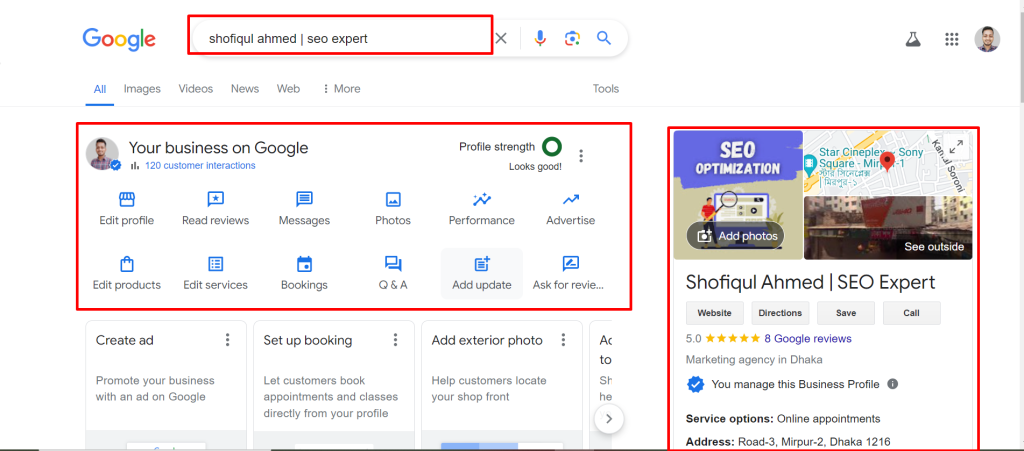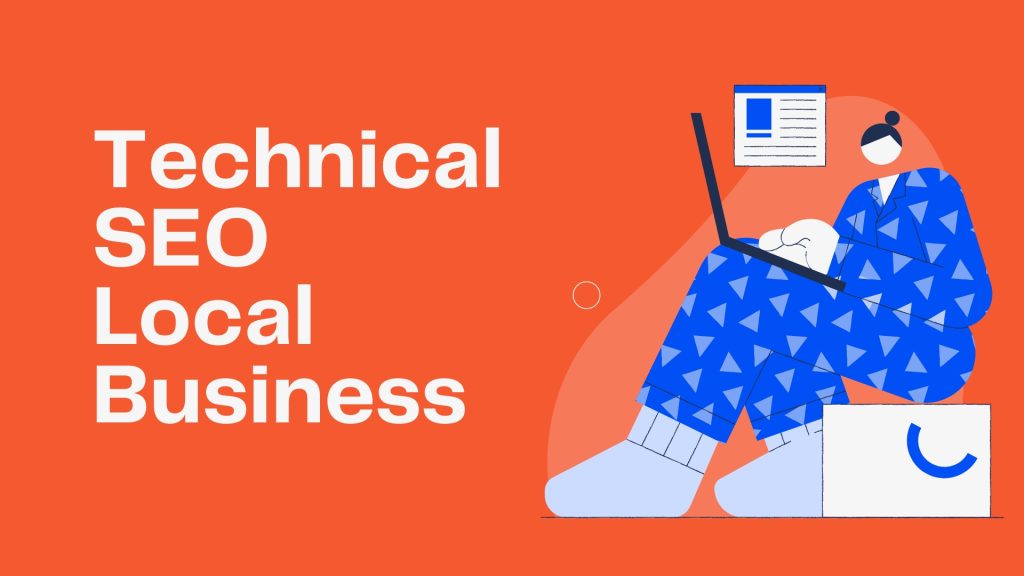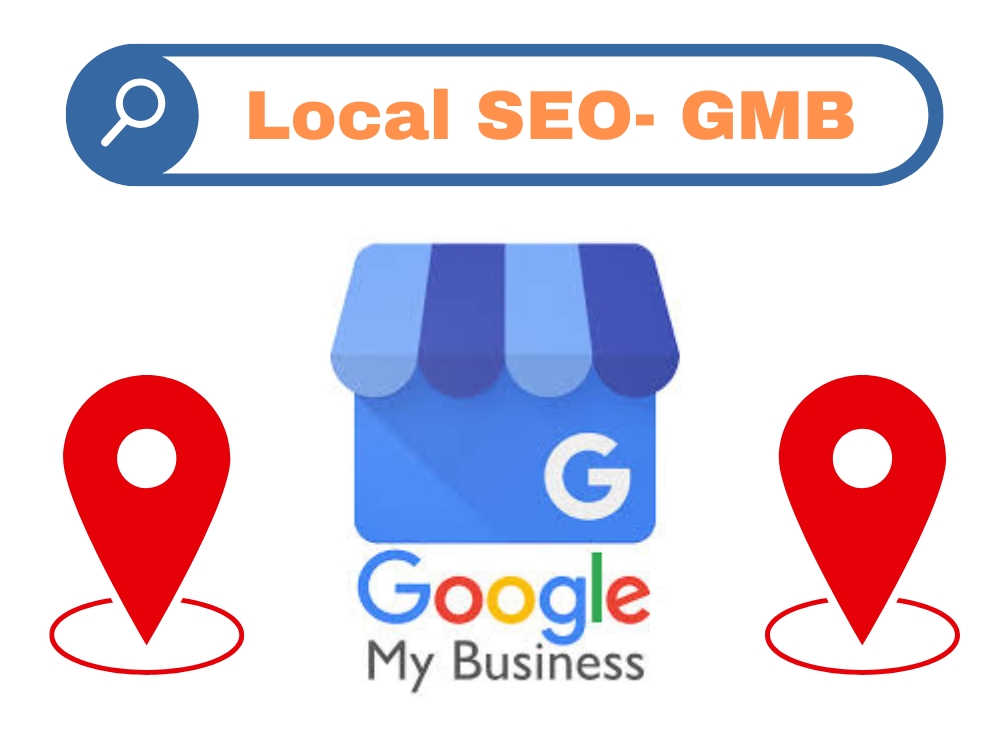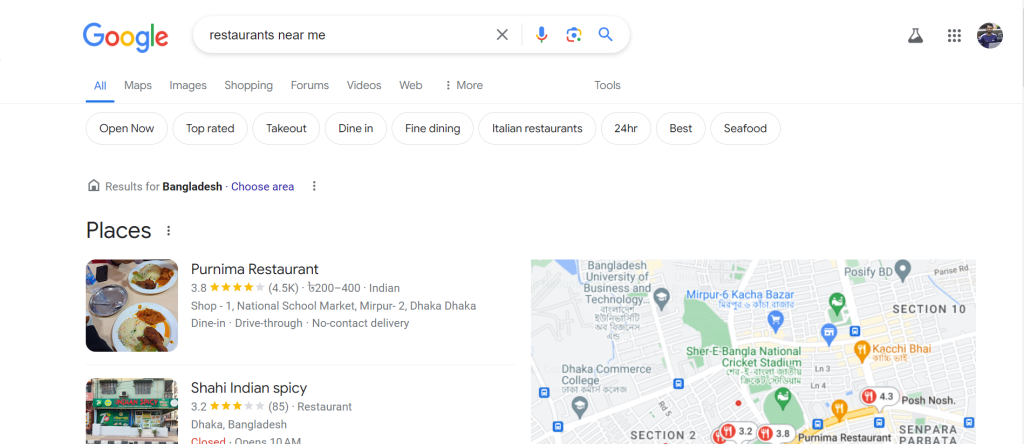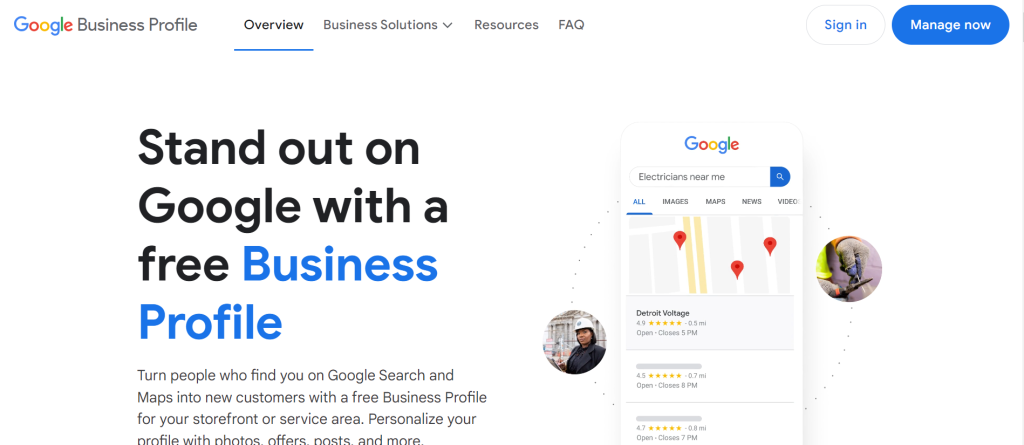In the digital age, where consumers rely heavily on search engines to find local businesses, mastering Local SEO (Search Engine Optimization) has become imperative for businesses aiming to thrive in their communities. Local SEO ensures your business appears prominently in search engine results when users search for products or services nearby. In this guide, we’ll explore essential strategies and tactics to enhance your local online presence and attract more customers to your doorstep.
What is Local SEO?
Local SEO (Search Engine Optimization) refers to optimizing a website or online presence to attract more traffic, leads, and customers from local searches on search engines like Google, Bing, or Yahoo.
Local SEO is essential for businesses that operate in specific geographic areas and want to target potential customers in their vicinity. It involves strategies and techniques to improve a website’s visibility in local search results, especially when users search for nearby products or services.
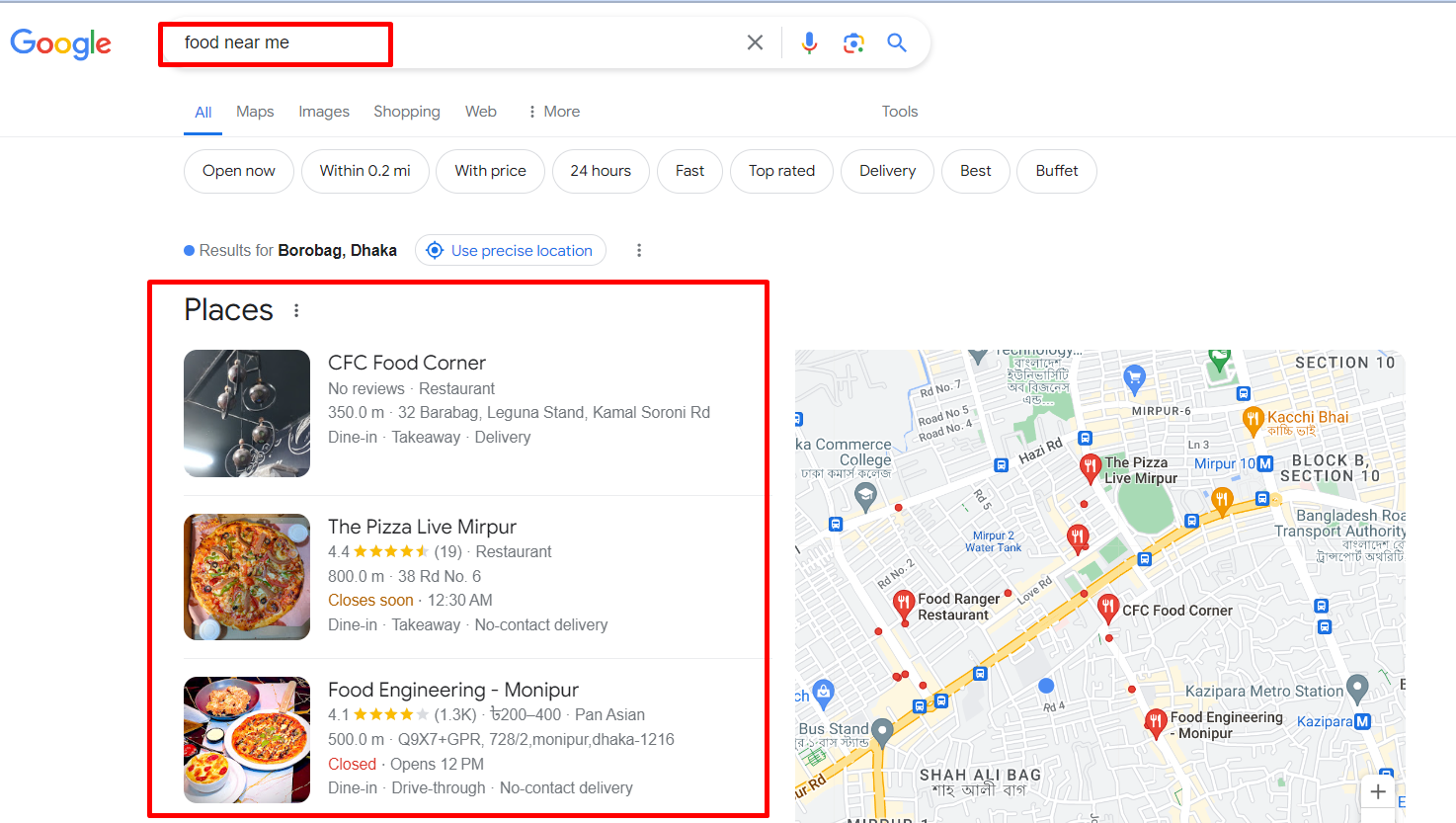
Why Is Local SEO Important?
-
Increased Visibility and Traffic: Local SEO helps your business get discovered by more local customers searching online. By ranking higher in local search results and on Google Maps, you get noticed by potential customers who are already interested in what you offer.
-
More Targeted Leads: Local SEO brings in users specifically looking for businesses in their area. This means you’re attracting people more likely to convert into customers since they already show purchase intent by searching locally.
-
Boost Credibility and Trust: Local SEO involves strategies like positive online reviews and accurate business listings. This builds trust and credibility with potential customers, making them more likely to choose you over competitors.
-
Drive More Foot Traffic or Calls: Local SEO can significantly increase the number of people visiting your location or contacting you by phone. This translates into more sales and overall business growth.
-
Capture Local Shopping Trends: With the rise of “shop local” movements, local SEO positions your business to benefit from this trend. Increased local visibility can attract customers specifically looking to support local businesses.
-
Outrank Bigger Businesses: Local SEO uses targeted keywords and strategies, making it easier for smaller businesses to compete with larger corporations in local search results.
How Local SEO Works
Local SEO (Search Engine Optimization) is a strategy focused on optimizing a website to rank better in local search results. It’s essential for businesses with physical locations or those targeting specific geographic areas. Here’s how it works:
- Google My Business (GMB) Optimization: GMB is a free tool provided by Google for businesses to manage their online presence across Google, including Search and Maps. Optimizing your GMB listing involves providing accurate and up-to-date information about your business, such as name, address, phone number (NAP), business hours, categories, and photos.
- Keyword Research: Like traditional SEO, keyword research is crucial for local SEO. However, you’ll focus on keywords that include geographic terms relevant to your business, such as “coffee shop in downtown Los Angeles” or “plumber near me.”
- Localized Content: It is essential to create content that is relevant to your local audience. This can include blog posts, landing pages, or even location-specific service pages that incorporate local keywords and address local concerns or interests.
- On-Page SEO: Optimizing your website’s on-page elements, such as title tags, meta descriptions, headers, and content, with local keywords helps search engines understand your site’s relevance to local searches.
- Local Link Building: Acquiring backlinks from local websites, directories, and community organizations can significantly boost your SEO efforts. These links signal to search engines that your business is relevant to the local area.
- NAP Consistency: It is crucial to ensure consistent and accurate NAP information across your website, GMB listing, and other online directories. Inaccurate information can confuse search engines and potential customers.
- Online Reviews: Positive reviews on platforms like Google, Yelp, and Facebook influence potential customers and your local SEO rankings. Encourage satisfied customers to leave reviews and promptly address any negative feedback.
- Mobile Optimization: With the increasing use of mobile devices for local searches, optimizing your website for mobile is essential. This includes ensuring fast loading times, easy navigation, and responsive design.
- Local Citations: Listings of your business information (NAP) on other websites, such as online directories, can improve your local SEO. Make sure these citations are accurate and consistent.
- Social Media: While not a direct ranking factor, a strong presence on social media platforms can indirectly impact your local SEO by increasing brand visibility engagement and driving traffic to your website.
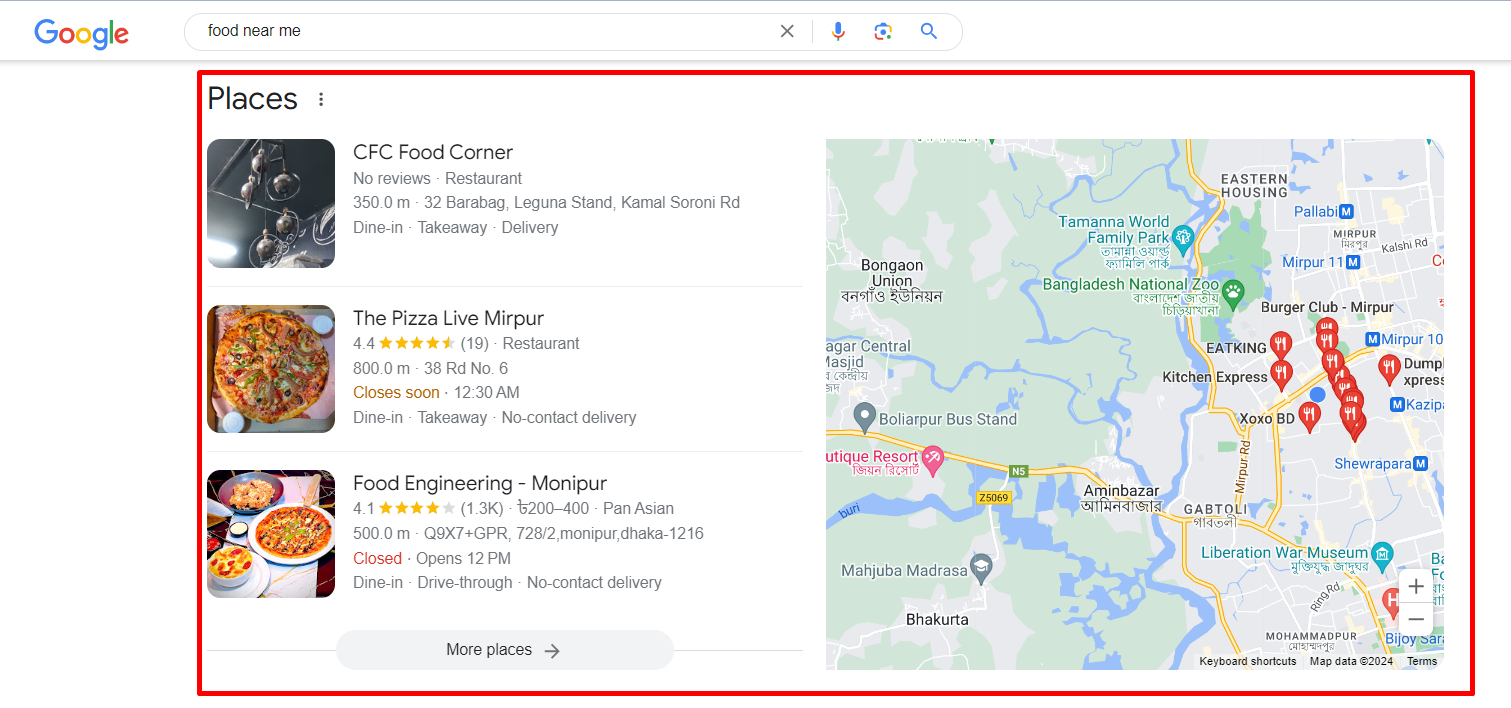
How to Do Local SEO?
1. Set up Google My Business (GMB):
- Begin by creating or claiming your GMB listing.
- Ensure that all information provided is accurate and up-to-date. This includes your business name, address, phone number (NAP), business hours, categories, and high-quality photos that represent your business.
- Verify your listing with Google to gain access to additional features and ensure trustworthiness.
2. Keyword Research:
- Start by identifying the keywords your potential customers are likely to use when searching for your products or services.
- Utilize keyword research tools such as Google Keyword Planner, SEMrush, or Moz to find relevant local keywords.
- Focus on long-tail keywords that include your location (e.g., “Italian restaurant in downtown Chicago”).
3. Optimize On-Page Elements:
- Incorporate local keywords naturally into your website’s title tags, meta descriptions, headers, and content.
- Create location-specific landing pages or service pages to target different areas or neighborhoods.
- Ensure that your website is optimized for mobile devices and loads quickly, as mobile-friendliness is crucial for local SEO.
4. Create Localized Content:
- Develop content that addresses local interests, concerns, or events relevant to your target audience.
- Write blog posts, articles, or guides that highlight your involvement in the local community or offer solutions to local problems.
- Incorporate local keywords organically within your content to improve relevance.
5. Build Local Citations:
- List your business on online directories, review sites, and local business associations to increase your online presence.
- Ensure that your NAP information is consistent across all citations to avoid confusion and maintain credibility.
- Focus on quality over quantity when building citations, prioritizing authoritative and relevant websites.
6. Acquire Local Backlinks:
- Reach out to local businesses, organizations, or news outlets for opportunities to earn backlinks.
- Participate in local events, sponsorships, or partnerships to gain exposure and potentially earn backlinks from event websites or local news coverage.
- Create valuable content that other local websites may want to link to, such as informative guides or local resources.
7. Encourage Online Reviews:
- Prompt satisfied customers to leave positive reviews on platforms like Google, Yelp, and Facebook.
- Respond promptly and professionally to all reviews, addressing any concerns or feedback from customers.
- Positive reviews not only influence potential customers but also signal trustworthiness to search engines.
8. Optimize for Voice Search:
- Optimize your content for voice search by focusing on natural language queries and conversational phrases.
- Use long-tail keywords and answer common questions your potential customers may ask.
- Consider incorporating local landmarks, street names, or neighborhood names into your content to align with voice search behavior.
9. Monitor and Analyze Performance:
- Utilize tools such as Google Analytics and Google Search Console to track website traffic, rankings, and user behavior.
- Monitor GMB insights to understand how customers are finding your business and interacting with your listing.
- Analyze the performance of your local SEO efforts regularly and make adjustments based on the data gathered.
10. Engage with the Local Community:
- Actively participate in local events, sponsorships, or charity initiatives to increase brand visibility and engagement within the community.
- Engage with local community groups or forums both online and offline to establish your business as a trusted local resource.
- Foster relationships with other local businesses and organizations through networking and collaboration opportunities.
Local SEO Tools
- Google My Business (GMB):
- GMB is a fundamental tool for managing your business’s online presence across Google, including Search and Maps. It allows you to update business information, respond to reviews, and gain insights into how customers find and interact with your business.
- Moz Local:
- Moz Local helps you manage your business listings across various online directories and platforms. It ensures consistency in NAP information and helps improve your local search visibility.
- BrightLocal:
- BrightLocal offers a suite of tools for local SEO, including citation building, reputation management, and local search ranking tracking. It provides detailed reports and insights to help you monitor and improve your local SEO performance.
- SEMrush:
- SEMrush is a comprehensive SEO tool that offers features for keyword research, competitor analysis, and local SEO optimization. It provides insights into local search trends, competitor rankings, and backlink opportunities.
- Whitespark:
- Whitespark specializes in local SEO tools, including citation building, reputation management, and local rank tracking. It helps businesses improve their local search visibility and attract more local customers.
- Yext:
- Yext offers solutions for managing business listings, reviews, and local search optimization. It helps businesses ensure accurate and consistent information across multiple online platforms and directories.
- Local SEO Checklist:
- Local SEO Checklist provides a comprehensive checklist of tasks and best practices for optimizing your business for local search. It covers everything from GMB optimization to citation building and review management.
- Synup:
- Synup helps businesses manage their online reputation, business listings, and local search optimization. It offers tools for monitoring reviews, tracking local search rankings, and ensuring NAP consistency across the web.
- CognitiveSEO:
- CognitiveSEO offers tools for comprehensive SEO analysis, including local SEO. It provides insights into local search rankings, competitor performance, and backlink opportunities to help businesses improve their local search visibility.
- Local Falcon:
- Local Falcon offers a unique tool for visualizing local search rankings across different locations. It provides a heat map view of your business’s visibility in local search results, allowing you to identify areas for improvement.
Local SEO Statistics
- Local Search Intent:
- According to Google, 46% of all Google searches have local intent. This means that nearly half of all searches on Google are conducted with the intent of finding local information, such as businesses, products, or services nearby.
- Mobile Local Searches:
- Mobile devices drive a significant portion of local searches, with 78% of local mobile searches resulting in offline purchases, according to Search Engine Land. This emphasizes the importance of mobile optimization and local SEO for businesses targeting local customers.
- Google My Business (GMB) Usage:
- Google My Business is a critical tool for local SEO, and its usage is widespread among consumers. According to Google, businesses with complete and accurate GMB listings are 70% more likely to attract location visits from users.
- Importance of Online Reviews:
- Online reviews play a crucial role in local SEO and consumer decision-making. BrightLocal reports that 87% of consumers read online reviews for local businesses, and 48% of consumers only consider businesses with a rating of 4 stars or higher.
- Local Search Engine Rankings:
- Local search engine rankings can significantly impact business visibility and traffic. According to Moz, proximity is the top local ranking factor, followed by relevance and prominence. This highlights the importance of optimizing your website and GMB listing for local search.
- Voice Search and Local Queries:
- With the rise of voice search, local queries are becoming more prevalent. According to BrightLocal, 58% of consumers have used voice search to find local business information in the last year. Businesses should optimize their content for voice search to capture local search traffic effectively.
- Local Search Behavior:
- Understanding local search behavior is crucial for optimizing local SEO strategies. According to HubSpot, 72% of consumers who perform a local search visit a store within 5 miles of their current location. This underscores the importance of local targeting and optimization.
- Local SEO ROI:
- Local SEO can deliver significant returns on investment for businesses. According to BrightLocal, 97% of consumers searched online to find a local business, with 12% searching for a local business every day. Optimizing for local search can help businesses attract more customers and increase revenue.
These statistics demonstrate the importance of local SEO for businesses looking to attract local customers, increase visibility in local search results, and drive offline and online conversions. By implementing effective local SEO strategies, businesses can improve their online presence, attract more customers, and ultimately grow their revenue.
Local SEO (Search Engine Optimization) refers to optimizing a website or online presence to attract more traffic, leads, and customers from local searches on search engines like Google, Bing, or Yahoo. If you’re looking to enhance your business’s local SEO, consider partnering with professionals like our team at Your Website’s Local SEO Services, who specialize in crafting bespoke strategies designed to elevate your online presence and drive targeted traffic.
